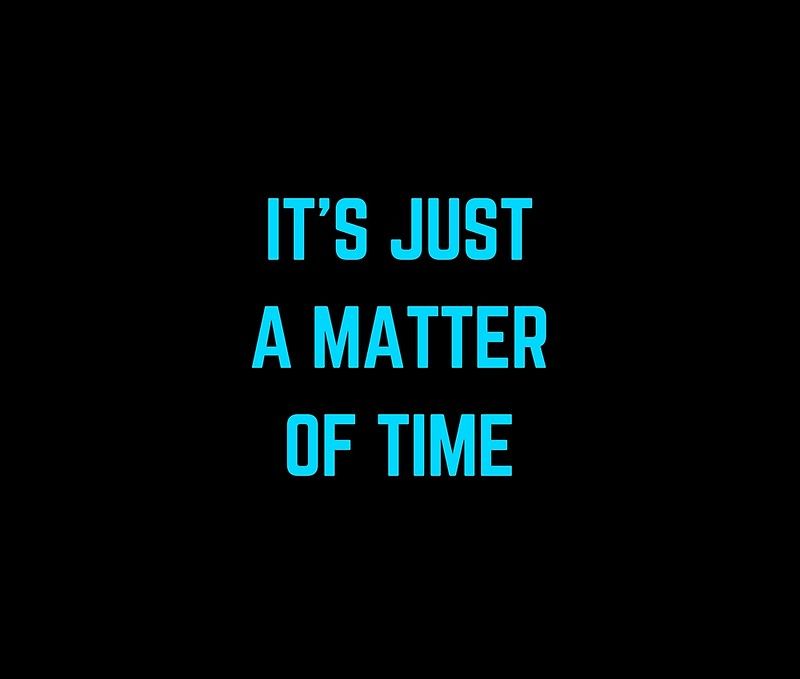
Cost-cutting has been prevalent over the past decade, and knowledge workers, like most employees, have had to take on some low-value tasks-such as making travel arrangements-that distract them from more important work. Organizations share some of the blame for less-than-optimal productivity.
#IN A TIMELY MATTER OR MANNER FREE#
…and yet those tasks were rated as most easily off-loaded and tiresome.Īrmed with this knowledge, study participants dropped, delegated, outsourced, or postponed low-value tasks to free up time for more important work.

Our research shows that desk-based work and “managing across” take up two-thirds of knowledge workers’ time, on average… “A call is more efficient, but it’s a cold, lifeless medium.” The Work That Knowledge Workers Do “I actually quite look forward to face-to-face meetings,” one respondent told us. And although meetings are widely derided as a waste of time, they offer opportunities to socialize and connect with coworkers. Making progress on any task-even an inessential one-increases our feelings of engagement and satisfaction, research has shown. Also, those less important items on our to-do lists are not entirely without benefit. “I want to appear busy and productive-the company values team players,” one participant observed. Most of us feel entangled in a web of commitments from which it can be painful to extricate ourselves: We worry that we’re letting our colleagues or employers down if we stop doing certain tasks. These are tasks that the knowledge workers themselves rated as offering little personal utility and low value to the company. We found that even the most dedicated and impressive performers devoted large amounts of time to tedious, non-value-added activities such as desk work and “managing across” the organization (for example, meetings with people in other departments). We interviewed 45 knowledge workers in 39 companies across eight industries in the United States and Europe to see how they spent their days.

A manager may suspect that an employee is spending her time inefficiently but be hard-pressed to diagnose the problem, let alone come up with a solution. The work they do is difficult to observe (since a lot of it happens inside their heads), and the quality of it is frequently subjective. Knowledge workers present a real challenge to managers.
#IN A TIMELY MATTER OR MANNER FULL#
By simply asking knowledge workers to rethink and shift the balance of their work, we were able to help them free up nearly a fifth of their time-an average of one full day a week-and focus on more worthwhile tasks with the hours they saved. While not everyone in our study was quite that successful, the results still astounded us. For example, when Lotta Laitinen, a manager at If, a Scandinavian insurance company, jettisoned meetings and administrative tasks in order to spend more time supporting her team, it led to a 5% increase in sales by her unit over a three-week period. We tried this intervention with 15 executives at different companies, and they were able to dramatically reduce their involvement in low-value tasks: They cut desk work by an average of six hours a week and meeting time by an average of two hours a week. Knowledge workers can make themselves more productive by thinking consciously about how they spend their time deciding which tasks matter most to them and their organizations and dropping or creatively outsourcing the rest. We believe there’s a way forward, however. We instinctively cling to tasks that make us feel busy and thus important, while our bosses, constantly striving to do more with less, pile on as many responsibilities as we’re willing to accept. So why do they keep doing them? Because ridding oneself of work is easier said than done.

Our research indicates that knowledge workers spend a great deal of their time-an average of 41%-on discretionary activities that offer little personal satisfaction and could be handled competently by others.

We’ve spent the past three years studying how knowledge workers can become more productive and found that the answer is simple: Eliminate or delegate unimportant tasks and replace them with value-added ones. But what if you could free up significant time-maybe as much as 20% of your workday-to focus on the responsibilities that really matter? It’s one thing everyone wants, and yet it’s impossible to attain.


 0 kommentar(er)
0 kommentar(er)
